Huawei is committed to promoting green ICT solutions
Achieving the objectives set out in the Green Deal demands actions coming from all sectors of the European economy:
- Investing in environmental-friendly technologies;
- Supporting industry to innovate and switch to greener processes;
- Rolling out cleaner, cheaper and healthier forms of private and public transport;
- Achieving digitalisation in rural areas and agriculture;
- Working with international partners to improve global environmental standards.
Artificial Intelligence & Farm to Fork Strategy: Huawei’s solutions
Connected Cow – A Huawei AI connected technology allowing farmers to maximize milk yields by monitoring the most optimal time for their cattle to mate over vast areas of land in real time – saving money, man-hours, and reducing waste.
Yield Monitoring – AI can monitor grain mass flow, moisture content and quality of harvested grains – reducing operational costs, waste, and enhancing productivity reducing prices.
Rural Star – 5G base station enabling remote farms and rural areas to have access to the network, making AI and smart farming possible to all.
Soil monitoring – IoT enabled solutions help farmers track and improve soil quality to avoid degradation over time.
With our continued investment in R&D, we aim to help industries to conserve energy and reduce emissions via the use of new technologies and build an environmentally friendly low-carbon society that saves resources.
What role can AI play in achieving the Green Deal priorities?
The European Green Deal covers all sectors of the economy. Digital technologies contribute through reducing transaction costs, monitoring real-time usage of data and building in efficiencies into processes. Digitalisation leads to greater efficiency and sustainable solutions.
AI solutions facilitate evidence-based decisions and expand capacities to understand and tackle environmental challenges – digital technologies are critical enablers for attaining the sustainability goals of the European Green Deal.
Broader use of AI could reduce worldwide greenhouse gas (GHG) emissions by 4% in 2030, an amount equivalent to 2.4 Gt CO2e.
Towards a green recovery – assisted by digital technologies
Recovery from the Coronavirus pandemic needs to be looked at in a holistic manner. The crisis may serve as a motor for the recovery – it can be turned into an opportunity to rebuild economies differently, and more sustainably. Europe will witness the transition to a new normality – digitalisation and sustainability will ensure more resilience and kickstart the economic restoration. A Green recovery is vital: mobilising investments towards sustainability – renewable energy, clean cars, energy-efficient houses – will make our society and our planet healthier. The bedrock of these technologies being successful is Artificial Intelligence. Data and AI will also help us to be better prepared for the future – and the next crisis. For now however, investing in the implementation of the European Green Deal aims is a route out of the Coronavirus crisis.
The importance of connectivity
Connectivity contributes to enforce policies, including those linked to Sustainable Development Goals and the Farm to Fork Strategy. With connectivity comes AI capability – a crucial component of the Farm to Fork Strategy: AI brings about reduced costs for farmers, improved soil management, a reduction in the use of pesticides, fresh water, and GHG emissions.
A long-term vision is essential: we urge policymakers to look at the future and invest in it now – creating regulatory certainty and investing in network connectivity are the next steps. Connectivity is strictly linked with accessibility: proper training and up-skilling of workers should be in each Member State’s agenda – so that they can actively take part in the renewed digitalised society.
Within the framework of the EU Green Week, Huawei is happy to exchange ideas and views on how to stimulate recovery in a sustainable, efficient way.
We have been in Europe for more than 20 years now, and we are committed to help the EU deliver its rightful digital ambitions, enhance resilience, and contribute to the recovery of the global economy.





